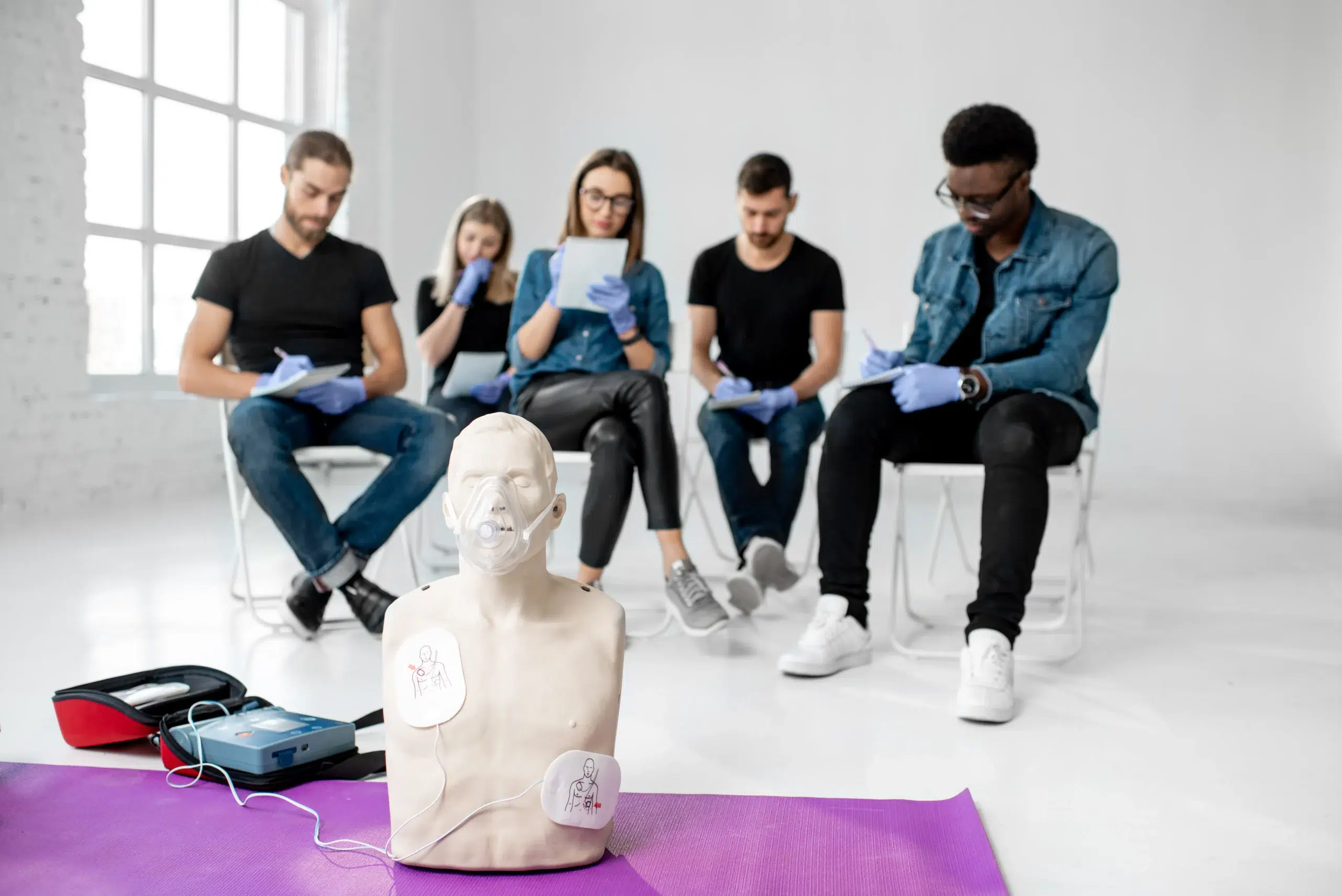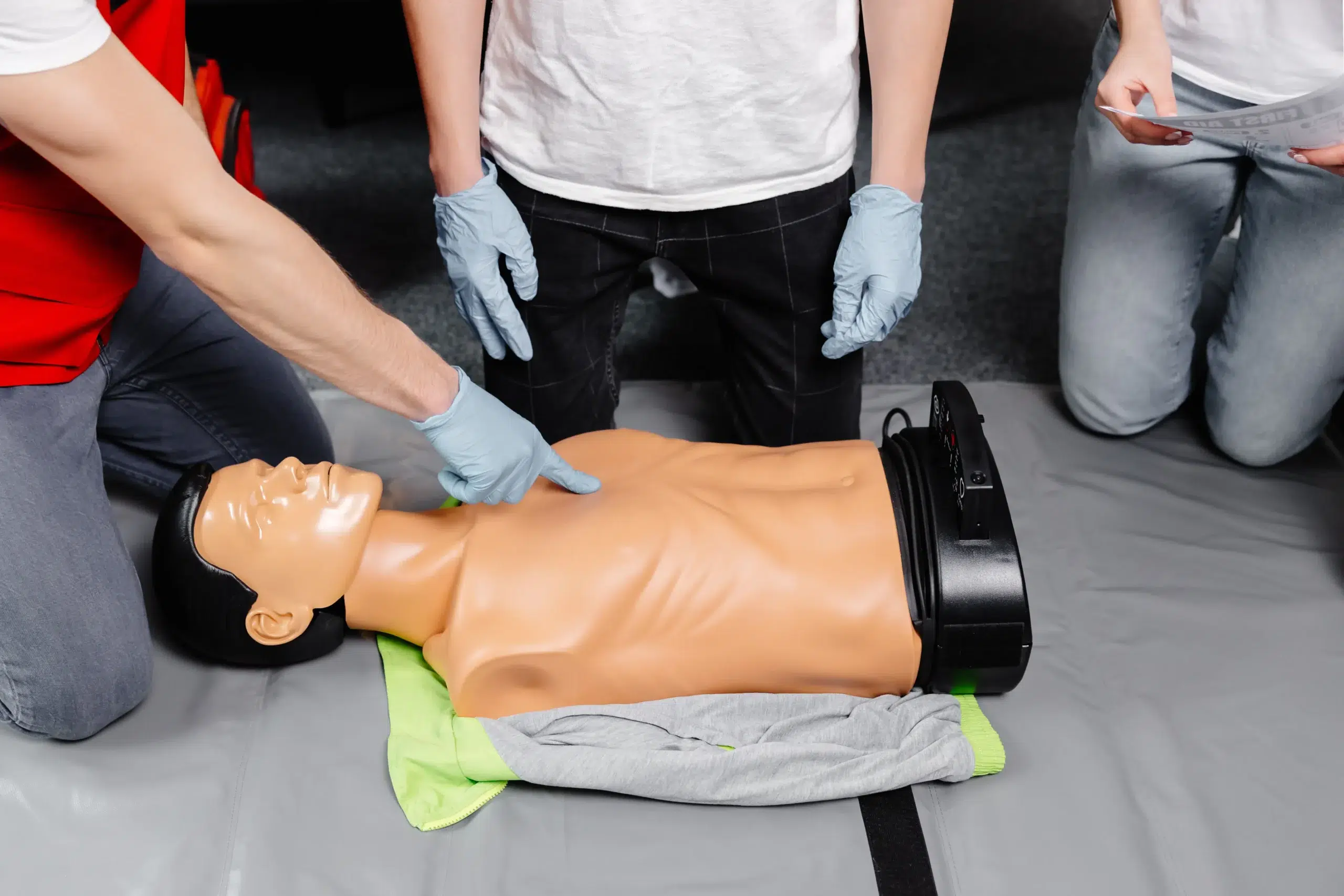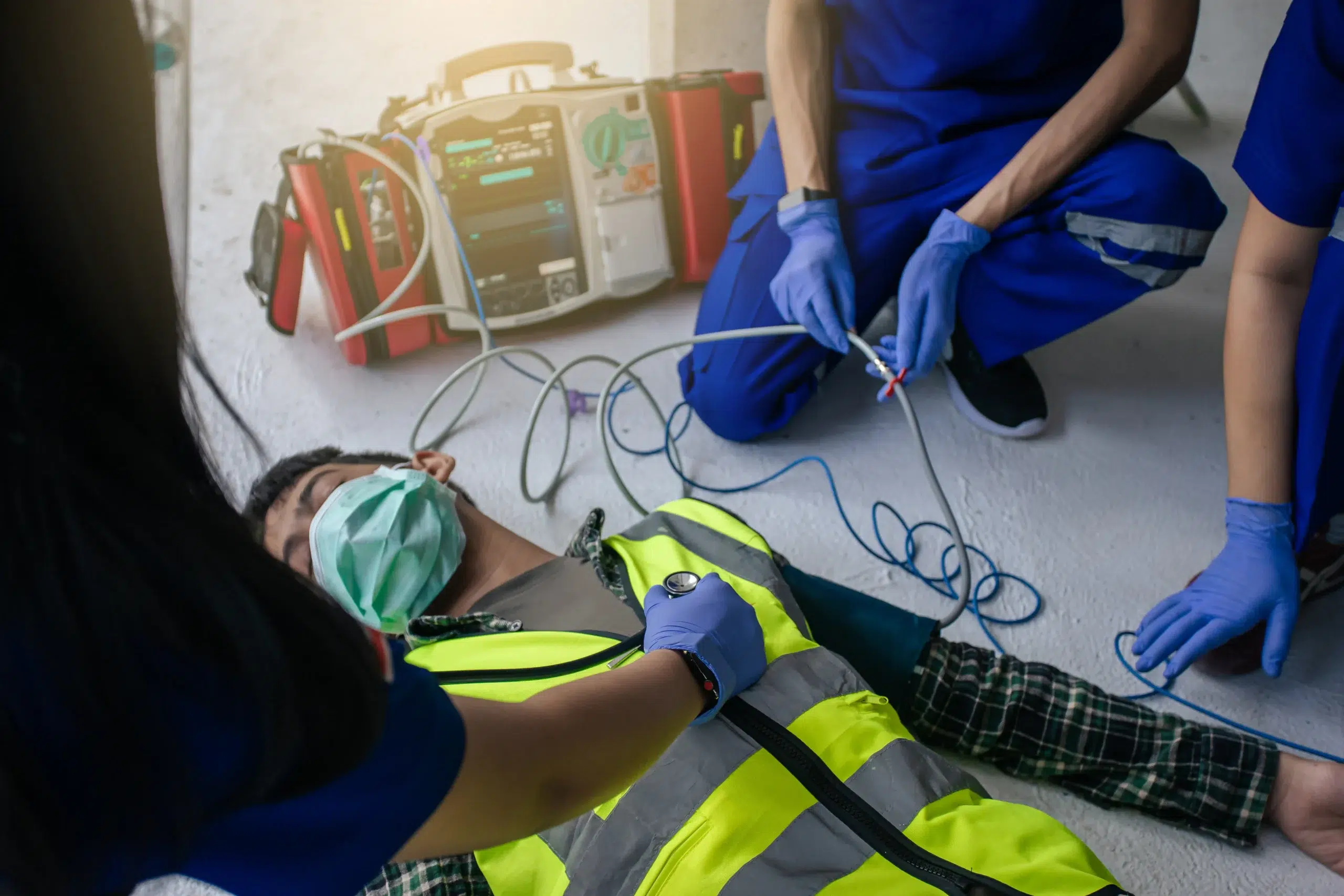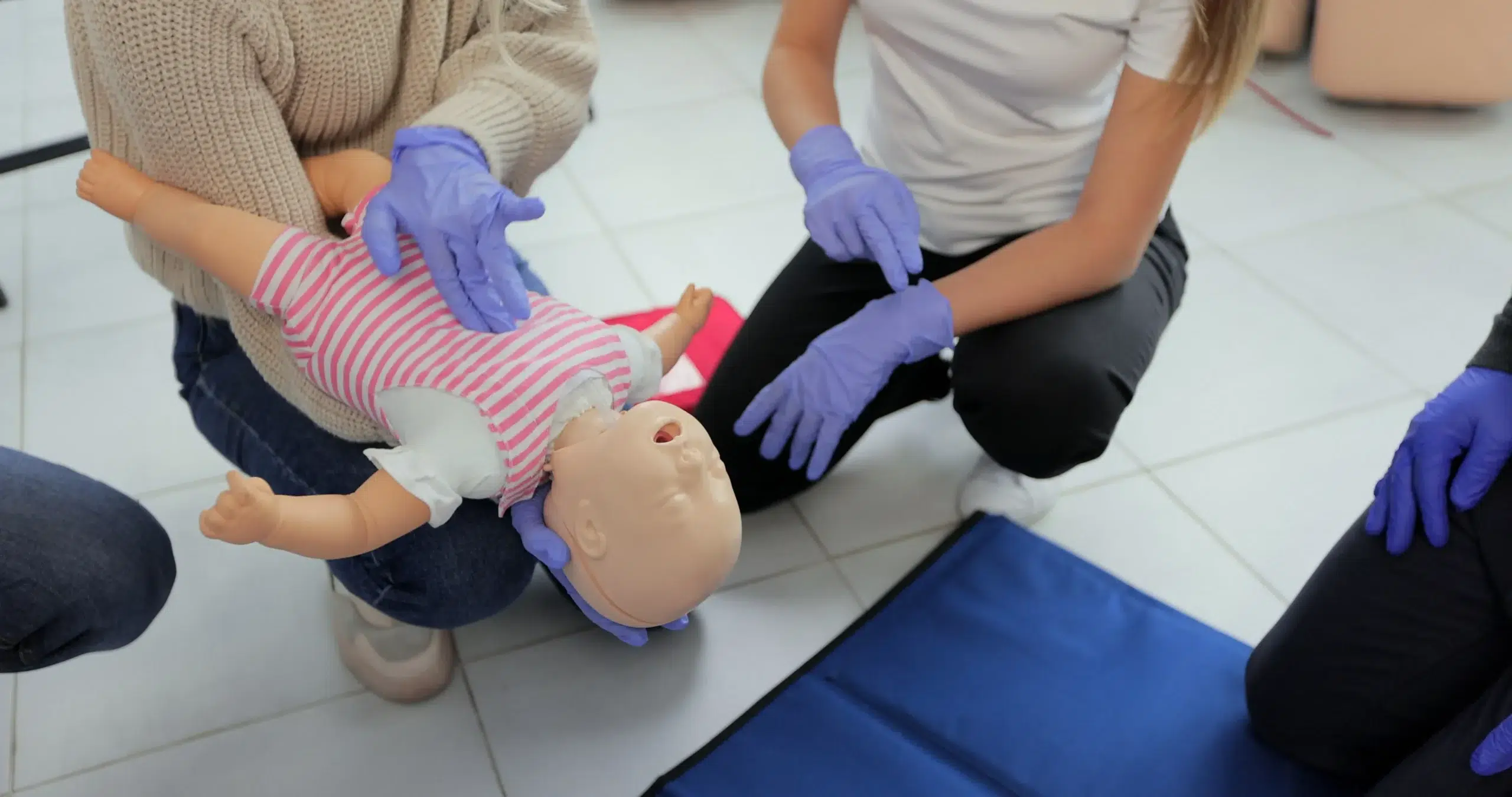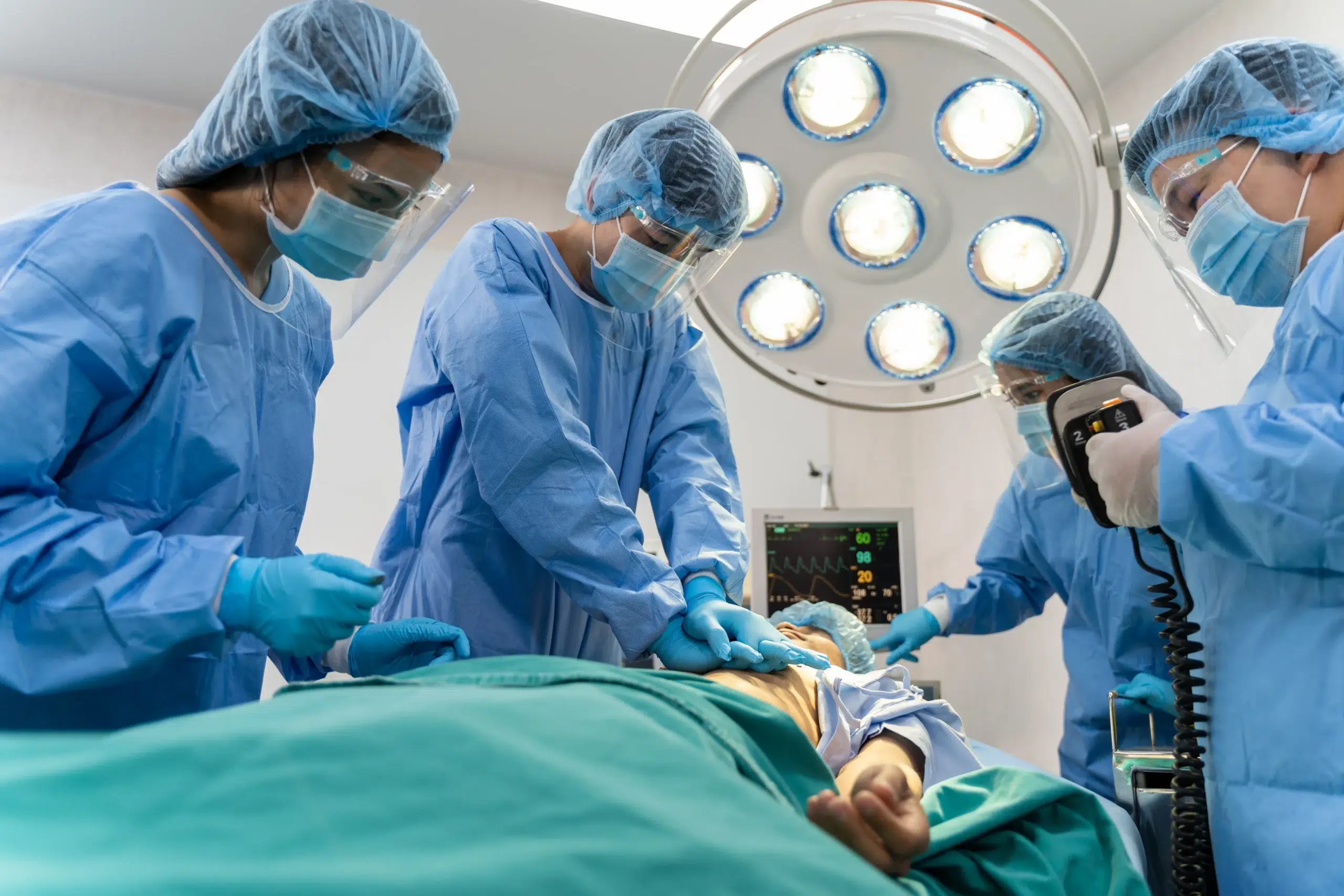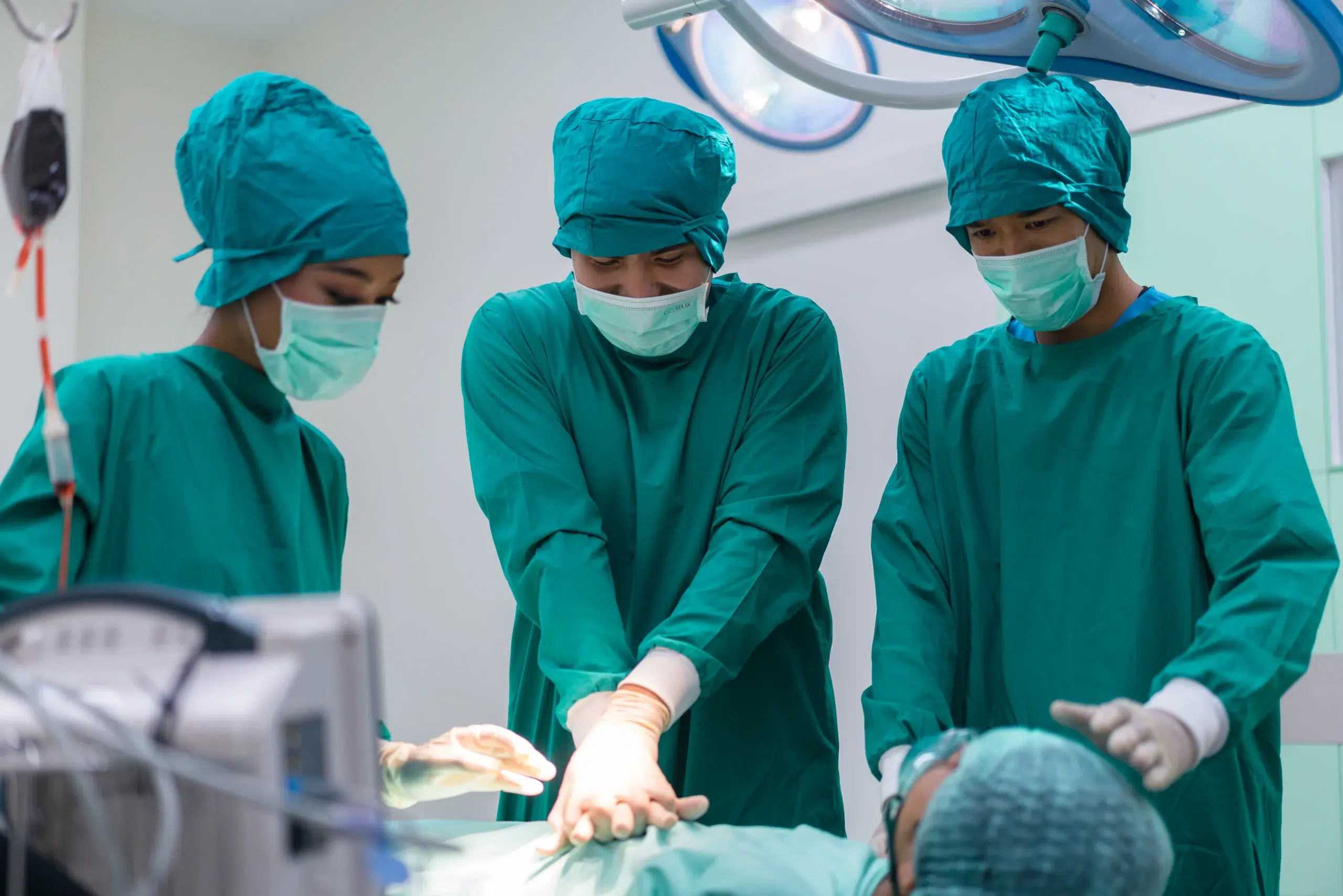CPR—it’s a skill that can turn bystanders into lifesavers. But with so much information out there, where do you even begin? This guide simplifies everything about CPR, from CPR facts and stats to the specifics of San Jose CPR courses. We’ll break down the different types of CPR training, discuss costs and available discounts, and guide you through choosing the right course for your needs. We’ll also explore what to expect during your training and how to maintain your skills afterward. Whether you’re a healthcare professional, a concerned parent, or simply someone who wants to be prepared, this guide is your starting point.
Key Takeaways
- CPR can save lives: Equipping yourself with this essential skill empowers you to respond effectively during emergencies and significantly improves survival rates for cardiac arrest victims.
- Find the right CPR training in San Jose: Explore various course options, including BLS, ACLS, PALS, and First Aid, to find the best fit for your needs and schedule. Many providers offer flexible formats like in-person, blended learning, and online courses.
- Select a quality training program: Choose a reputable provider with certified instructors who possess real-world experience and prioritize ongoing training. This ensures you receive the most current and effective instruction.
What is CPR?
CPR stands for cardiopulmonary resuscitation. It’s a lifesaving technique used when someone’s breathing or heartbeat has stopped. This can happen due to a heart attack, near drowning, or other medical emergencies. The goal of CPR is to restore blood flow and oxygen to the brain and other vital organs until professional medical help arrives. Learning CPR empowers you to make a real difference in a critical situation.
What is CPR and Why is it Important?
CPR involves chest compressions and rescue breaths. The chest compressions manually pump the heart, circulating blood throughout the body. Rescue breaths provide oxygen to the lungs. CPR buys precious time by keeping oxygenated blood flowing, which can help prevent brain damage and increase the chances of survival. It’s a bridge between the emergency and the arrival of paramedics.
CPR Statistics and Survival Rates
The statistics around cardiac arrest are sobering. More than 350,000 out-of-hospital cardiac arrests occur annually in the U.S., and sadly, about 90% of those individuals don’t survive, according to the American Red Cross. For every minute without CPR or defibrillation, the chances of survival decrease by 10%. Taking immediate action can triple a person’s chance of surviving.
How CPR Saves Lives
CPR can dramatically improve survival rates. Bystanders who perform CPR significantly increase the odds of someone surviving cardiac arrest. Yet, only about 41% of people who experience cardiac arrest outside of a hospital receive CPR from someone nearby, according to the American Red Cross. Increasing this number through broader CPR training could have a profound impact. Unfortunately, there are disparities in access to training. Studies show that formal CPR training is less common in Black and Hispanic communities, which contributes to lower survival rates. Bridging this gap is crucial.
CPR Courses in San Jose
CPR certification is an invaluable skill, empowering you to respond effectively during medical emergencies. Whether you’re a healthcare professional, a concerned parent, or simply someone who wants to be prepared, San Jose offers various CPR courses to meet your needs. This section breaks down the course options, content, and steps to get certified.
CPR Course Options
Safety Training Seminars offers a range of American Heart Association (AHA) certified courses in San Jose, including BLS, ACLS, PALS, and First Aid. These courses cater to different levels of expertise, from basic life support for the community to advanced cardiovascular life support for healthcare providers. You can also find combined CPR and First Aid training programs.
Course Content and Length
BLS certification provides essential, life-saving skills. You’ll learn CPR, AED use, and airway management techniques to confidently respond to emergencies. CPR courses in San Jose typically cover adult, child, and infant CPR, giving you the skills to assist individuals of all ages. Course length varies depending on the specific certification, but you can complete most programs within a day. Safety Training Seminars offers courses designed to give you the skills and confidence to respond effectively in emergencies.
Get Certified in CPR
Ready to take the next step? Safety Training Seminars is a woman-owned AHA Training Center providing high-quality AHA courses in San Jose. For your convenience, they offer certification courses every day of the week in San Jose and surrounding areas. Getting certified is straightforward, and with regularly available courses, you can find a schedule that works for you.
CPR Training Costs in San Jose
Understanding CPR course pricing is an important step when choosing the right class. Several factors influence the cost of a CPR course, and knowing these can help you find training that fits your budget and needs.
CPR Course Pricing
Safety Training Seminars offers a range of American Heart Association (AHA) certified courses in San Jose, including BLS, ACLS, PALS, and First Aid. If you’re a healthcare provider, BLS, ACLS, or PALS certification may be required. CPR and First Aid training is also available through Safety Training Seminars. Knowing which certifications you need will help you narrow your options and understand associated costs.
What Determines Course Costs?
BLS certification courses in San Jose have varying price tags. Costs often depend on the provider, the format (online, in-person, or blended learning), and included materials. Online
Discounts and Promotions
It’s always smart to ask about potential discounts. Some providers offer group discounts on CPR and BLS courses, making it more affordable to train with friends or colleagues. Check if your employer offers reimbursement for CPR training. Safety Training Seminars offers a low price guarantee, so you can feel confident you’re getting a competitive price. Contact various training centers and compare prices to find the best value.
San Jose CPR Instructor Qualifications
Understanding CPR instructor qualifications is key to choosing a reputable training program. You want to learn from someone who knows their stuff, right? Here’s what to look for in a qualified CPR instructor in San Jose:
Required Instructor Certifications
First and foremost, your instructor should hold a current certification from a recognized organization like the American Heart Association (AHA). For instructors teaching healthcare providers, a valid Basic Life Support (BLS) Instructor certification is essential. This ensures they’re up-to-date on the latest guidelines and techniques. Many instructors also hold additional certifications, such as Advanced Cardiovascular Life Support (ACLS) and Pediatric Advanced Life Support (PALS), demonstrating a deeper understanding of life-saving procedures. You can often find information about an instructor’s credentials on the training center’s website. Safety Training Seminars is one local example.
Instructor Training and Recertification
CPR techniques and guidelines evolve, so ongoing training and recertification are crucial for instructors. Look for training centers that emphasize continuing education for their instructors, like those offering an RQI program. This program allows healthcare providers to renew their certifications through convenient online courses and skills sessions. Instructors should also regularly renew their BLS, ACLS, and PALS certifications to maintain their qualifications. This commitment to staying current ensures you receive the most accurate and effective training. For example, Safety Training Seminars prioritizes instructor development.
Instructor Experience
While certifications are essential, real-world experience matters too. Instructors with backgrounds in healthcare, education, or other related fields often bring valuable insights to the classroom. They can share practical examples and answer your questions based on their experiences. AllCPR San Jose often highlights the experience of its instructors, giving you confidence in their ability to teach effectively. Look for programs that emphasize hands-on practice and scenario-based learning, as this allows instructors to share their expertise and guide you through realistic situations.
Choose the Right CPR Course
Choosing the right CPR course is crucial for effectively learning this life-saving skill. With different levels, formats, and providers available, it’s important to understand your options. This section will guide you through selecting the best CPR course in San Jose for your needs.
Choosing a Course
First, identify which type of CPR certification you need. Are you a healthcare provider requiring BLS certification? Or are you a parent or teacher looking for a general CPR and First Aid course? Safety Training Seminars offers a variety of American Heart Association (AHA) certified courses in San Jose, including BLS, ACLS, PALS, and First Aid. This range ensures you can find the right fit. Check out our course calendar to explore BLS courses and other CPR and First Aid training.
In-Person or Blended Learning?
Next, consider your learning style and schedule. Do you prefer in-person instruction or the flexibility of online learning? While online CPR training offers convenience for learning the basics, in-person classes at Safety Training Seminars provide hands-on practice and personalized feedback from our certified instructors. This direct interaction is invaluable for building confidence and mastering essential techniques. We also offer a blended learning RQI program for healthcare professionals seeking a flexible way to renew certifications.
Find the Right Course For You
Ultimately, the best CPR course equips you with the skills and confidence to respond effectively in an emergency. Safety Training Seminars offers CPR courses in San Jose designed for just that. Our convenient in-person BLS courses in San Jose help you gain certification quickly. Our goal is to empower you to make a difference when it matters most. We also offer a low price guarantee, so you can feel confident you’re getting the best value for your training. Learn more about our low price guarantee.
Your CPR Training Experience
CPR training isn’t just about learning the mechanics—it’s about gaining the confidence to act quickly and effectively in a crisis. Here’s what you can expect:
What Happens During CPR Training?
CPR training courses cover the essential techniques of cardiopulmonary resuscitation, focusing on chest compressions and rescue breaths. You’ll learn how to recognize the signs of a cardiac arrest and how to respond swiftly. The training is hands-on, using manikins so you can practice these life-saving skills in a safe and controlled environment. AHA-certified courses equip you with the knowledge and skills to handle emergencies effectively, including using an automated external defibrillator (AED).
Practice CPR Skills
Hands-on practice is a crucial part of CPR training. You’ll have ample opportunity to practice your CPR skills on manikins, refining your technique and building muscle memory. This repetitive practice helps you develop the confidence to perform CPR effectively under pressure. Many training centers offer same-day CPR certification upon successful completion of the skills assessment. This means you leave the course with both the knowledge and the official certification validating your skills.
Post-Course Support
Your learning journey doesn’t end when you leave the classroom. Continued learning and skill maintenance are essential for staying prepared. Safety Training Seminars offers various post-course renewal options, including the RQI program, a convenient online option for healthcare providers. This ongoing support ensures your skills remain sharp and up-to-date. You can also find information about their low price guarantee on their website.
Top San Jose CPR Training Providers
Finding the right CPR training provider is crucial for a quality learning experience. Here’s a rundown of some prominent CPR training providers in San Jose:
Safety Training Seminars
Safety Training Seminars offers a comprehensive range of American Heart Association (AHA) certified courses, including BLS, ACLS, PALS, and First Aid. They understand busy schedules, so they offer CPR certification courses daily. Their dedicated customer service team supports students throughout their training. For medical professionals, their unique RQI program allows for convenient online learning and skills testing. They also offer a low price guarantee, ensuring competitive pricing.
American Red Cross
The American Red Cross provides CPR and First Aid training. They offer classes in San Jose in various formats, including in-person sessions and blended learning options that combine online coursework with in-person skills practice. The Red Cross emphasizes job-relevant skills and OSHA compliance. Explore their CPR class offerings on their website.
American Heart Association
While not a direct training provider, the American Heart Association (AHA) sets the standard for CPR certification. Many authorized training centers, like Safety Training Seminars, offer AHA-certified courses. This ensures the training aligns with the latest AHA guidelines. Look for training centers that display their AHA affiliation. You can often find a list of AHA Training Centers on the AHA website.
Emergency & Health Training Center
The Emergency & Health Training Center focuses on CPR and AED training for the general public. Their courses cover essential life-saving techniques for adults, children, and infants, including AED use. This training is valuable for anyone who wants to be prepared for emergencies.
San Jose CPR Certification
With many positive reviews, San Jose CPR Certification has built a strong reputation. They offer courses taught by AHA-certified instructors and cater to both healthcare providers and the general public. Their focus on practical skills helps students develop the confidence to act in emergencies. See their reviews to learn more.
AllCPR San Jose
AllCPR San Jose offers Red Cross-certified CPR courses and AHA Healthcare Provider BLS courses. Their training equips participants with the knowledge and skills to respond confidently in emergencies. They emphasize hands-on practice and provide a supportive learning environment.
Enroll in a CPR Course
Safety Training Seminars offers a range of American Heart Association (AHA) certified courses in San Jose, including BLS, ACLS, PALS, and First Aid. If you’re a healthcare provider, BLS, ACLS, or PALS certification may be required for your job.
Sign Up for CPR Training
Ready to learn CPR? Safety Training Seminars offers CPR courses in San Jose designed to give you the skills and confidence to respond effectively during emergencies. Whether you’re a medical professional, a childcare provider, or simply someone who wants to be prepared, there’s a course for you. View their course schedule and register for a class.
Prepare for Your CPR Course
Wondering what to expect? On the day of the course, you’ll receive a free keychain CPR training mask. This handy tool allows you to practice your skills anytime, anywhere. After you complete the skills test, you will immediately receive the official American Heart Association certification eCard, valid for two years.
Maintain Your CPR Skills
Your CPR skills are valuable, and keeping them current is essential. Safety Training Seminars offers various renewal options, including the RQI program for healthcare providers. They also offer renewal courses for other certifications like BLS, ACLS, and PALS. Learn more about their renewal options and their low price guarantee.
Related Articles
- Why CPR is Important in Healthcare – San Jose CPR Classes
- 25 Surprising CPR Facts: San Jose CPR Class Guide – San Jose CPR Classes
- The Importance of CPR in Saving Lives – San Jose CPR Classes
- CPR Classes in San Jose: Your Complete Guide – San Jose CPR Classes
- History of CPR & San Jose CPR Classes – San Jose CPR Classes
Frequently Asked Questions
What’s the difference between CPR and First Aid? CPR focuses specifically on restoring breathing and circulation when someone’s heart has stopped. First Aid covers a broader range of medical emergencies, from minor cuts and burns to more serious injuries like fractures and allergic reactions. Often, you’ll find courses that combine CPR and First Aid training, giving you a well-rounded skillset to handle various situations.
How long does CPR certification last, and how do I renew it? CPR certification typically lasts for two years. Renewal involves taking a recertification course to refresh your skills and knowledge of the latest guidelines. Many training centers offer various renewal options, including convenient online programs like the RQI program for healthcare providers. Check with your certifying organization or training center for specific renewal requirements.
Why should I get CPR certified if I’m not a healthcare professional? CPR is a life skill that anyone can benefit from. While it’s often associated with healthcare professionals, knowing CPR can empower you to save a life in any setting, whether at home, at work, or out in the community. You never know when you might be the only person who can help in a medical emergency.
What if I’m nervous about performing CPR in a real emergency? It’s completely normal to feel nervous about performing CPR, especially if you’ve never done it outside of a training environment. That’s why quality CPR training emphasizes hands-on practice and realistic scenarios. This helps build your confidence and prepares you to respond effectively under pressure. Remember, any attempt at CPR is better than none.
How do I find a reputable CPR training provider in my area? Look for training centers certified by recognized organizations like the American Heart Association (AHA) or the American Red Cross. Check online reviews and ask for recommendations from friends, family, or colleagues. A good training provider will have experienced instructors, offer a variety of courses, and prioritize hands-on practice. Don’t hesitate to contact different providers and ask questions about their programs before making a decision.
